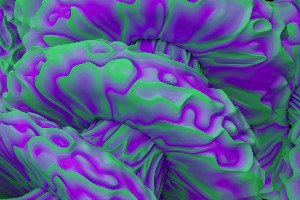Author
«Mani di ferro mi tirano verso una fossa». Daniil Charms e il giubileo di Puškin del 1937
Introduction
«mani di ferro mi tirano verso una fossa». Daniil charms e il giubileo di puškin del 1937. Esplora la protesta di Daniil Charms contro il giubileo di Puškin del 1937, dissacrando l'uso staliniano del poeta. Un'opera che parla a chi vive nell'oppressione e nella paura.
Abstract
La risposta di Daniil Charms al giubileo di Puškin del 1937: una vibrata protesta contro la trasformazione del poeta ottocentesco nel vessillo dello stalinismo. Nella poesia, nella prosa e negli aneddoti di Charms la dissacrazione bonaria della vulgata staliniana, un’opera che travalica il suo tempo per parlare a tutti gli uomini che vivono nell’oppressione, nella paura e nel bisogno.
Review
The article, "«Mani di ferro mi tirano verso una fossa». Daniil Charms e il giubileo di Puškin del 1937," presents a compelling examination of Daniil Charms' singular response to the 1937 Pushkin Jubilee, a pivotal moment in Soviet cultural politics. The abstract immediately captures attention by framing Charms' reaction as a "vibrant protest" against the state's efforts to transform Alexander Pushkin into a symbol of Stalinist ideology. This promises a fresh and insightful perspective on a period characterized by intense ideological control and state-sponsored myth-making, highlighting an act of artistic defiance against the backdrop of historical pressures. The article's strength lies in its proposed multi-faceted analysis, delving into Charms' protest as expressed across his poetry, prose, and anecdotes. This comprehensive approach suggests a rich and nuanced exploration of how Charms engaged in a "genial desecration" (dissacrazione bonaria) of the official Stalinist narrative. By focusing on Charms' subversive tactics, the research offers a valuable contribution to understanding not only the intricate layers of his artistic output but also the broader mechanisms of cultural resistance and the subversion of state-imposed historical memory during a repressive era. Beyond its specific historical and literary context, the article elevates the significance of Charms' work by arguing that it "transcends its time to speak to all men who live in oppression, fear, and need." This powerful statement underscores the universal resonance of Charms' artistic response, positioning it as a timeless commentary on the human condition under duress. Such an exploration promises to offer profound insights into the enduring power of individual expression against totalitarian systems, making this a highly valuable and thought-provoking contribution to both literary studies and broader discussions of human rights and resistance.
Full Text
You need to be logged in to view the full text and Download file of this article - «Mani di ferro mi tirano verso una fossa». Daniil Charms e il giubileo di Puškin del 1937 from Medea .
Login to View Full Text And DownloadComments
You need to be logged in to post a comment.
Top Blogs by Rating
The Brain's Ultimate Illusioni...
By Sciaria
Andragogy: The Secret to Engag...
By Sciaria
Your Dynamic DNA: The Adapting...
By Sciaria
Favorite Blog
Digitalization: Mastering the...
By Sciaria
Beyond the Encore: The Ghost L...
By Sciaria
Unlock Your Financial Future:...
By Sciaria
Related Research
lead and copper heavy metal content in the morosari waters, demak region
Perancangan aplikasi penjualan buku berbasis android pada cv kamalia sinar sejahtera
Presentase kejadian nyeri punggung mahasiswa berdasarkan pemilihan posisi duduk perkuliahan biostatistik
Share
Notice Board
- PENGEMBANGAN DAN PENDAMPINGAN APLIKASI KEUANGAN PESANTREN BERBASIS WEB SEBAGAI MEDIA MANAGEMENT KEUANGAN SYARIAH
- PRODUKSI NUGGET DAN SOSIS AYAM KAMPUNG YANG DICURING NANOKAPSUL JUS KUNYIT SEBAGAI PANGAN FUNGSIONAL PENCEGAH RAWAN STUNTING
- ISLAMIC RELIGIOUS EDUCATION AND ITS ROLE IN SHAPING STUDENTS’ MORALITY IN THE AGE OF SOCIETY 5.0





